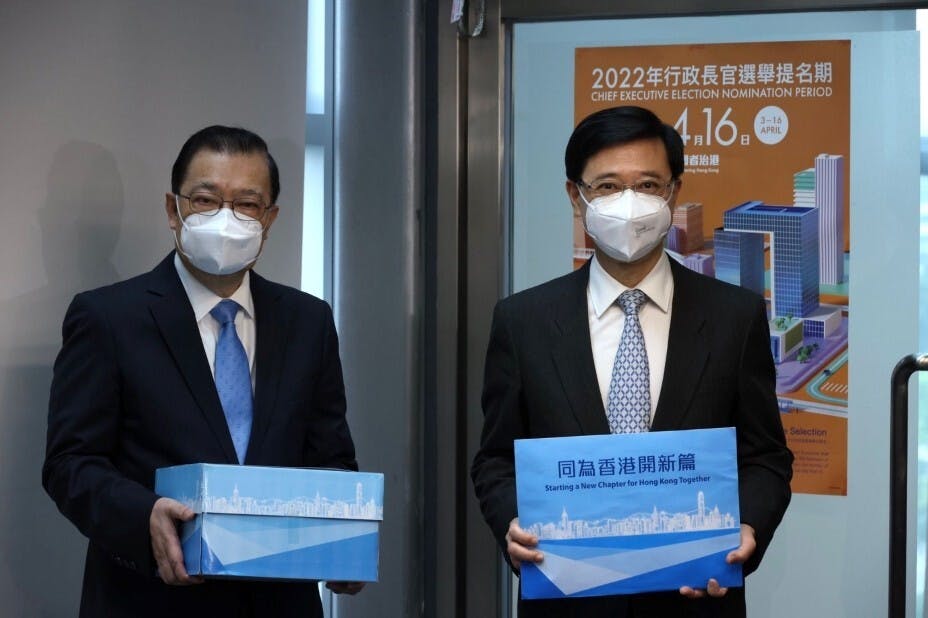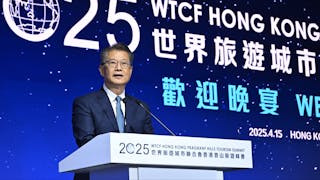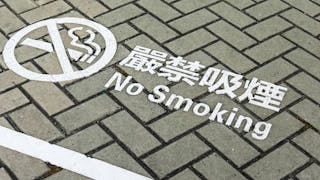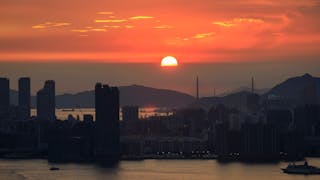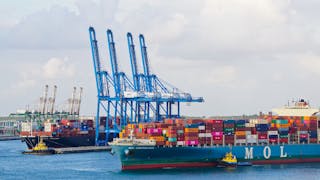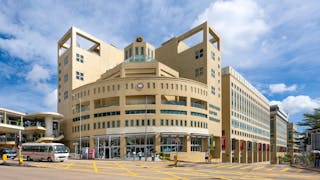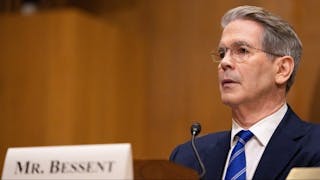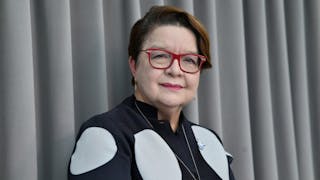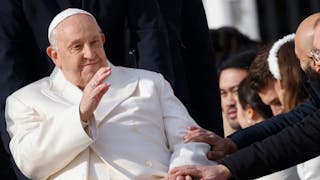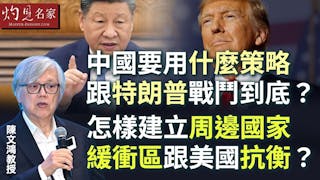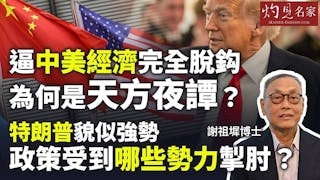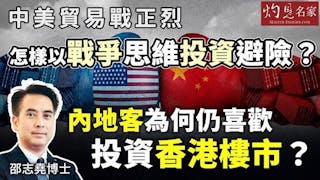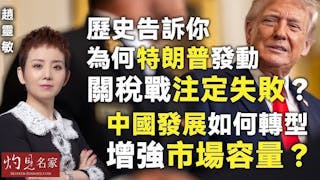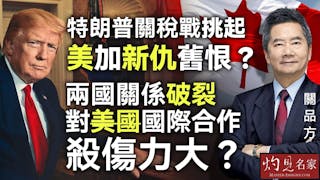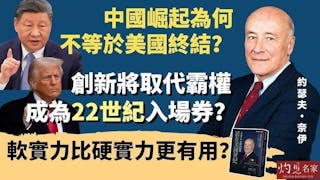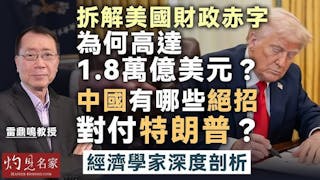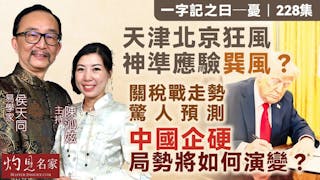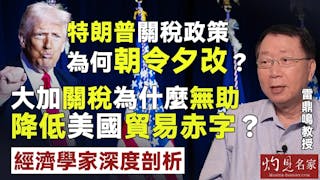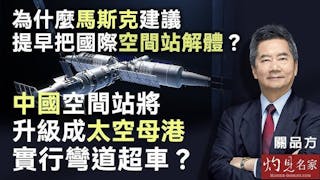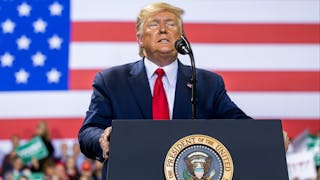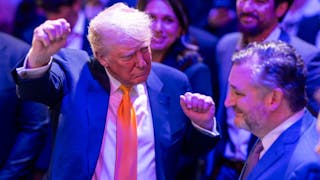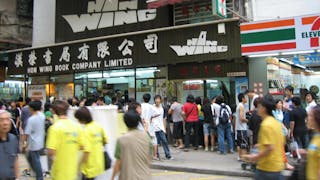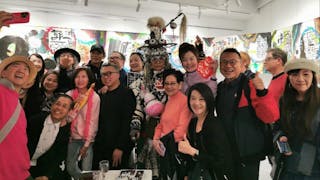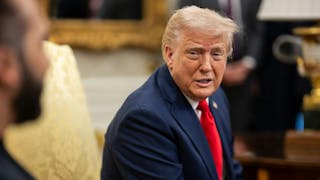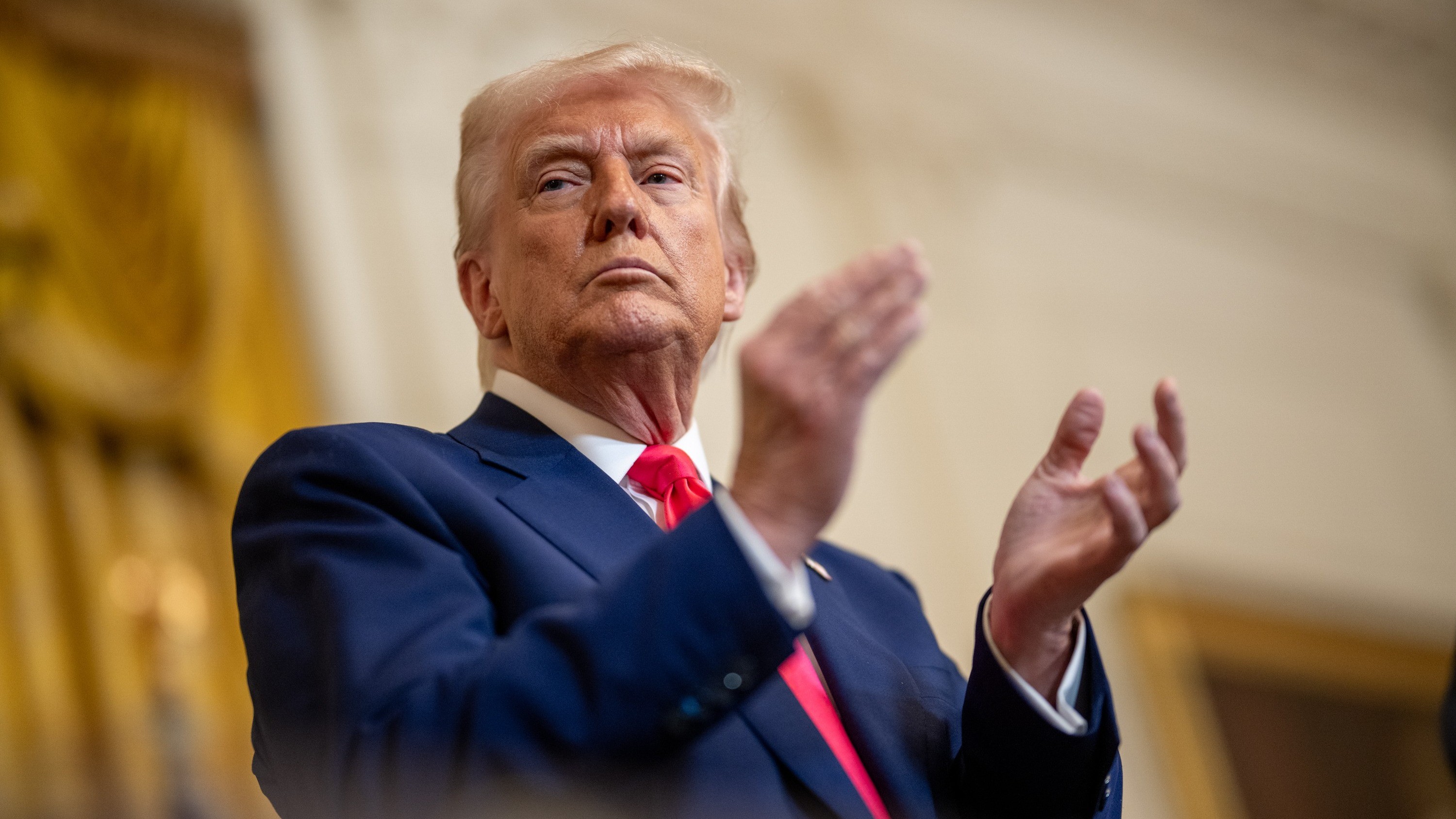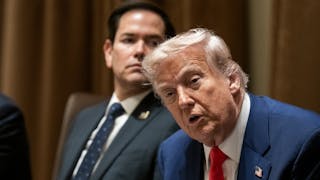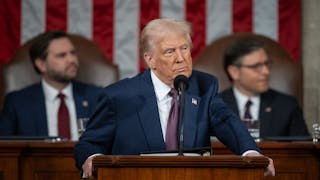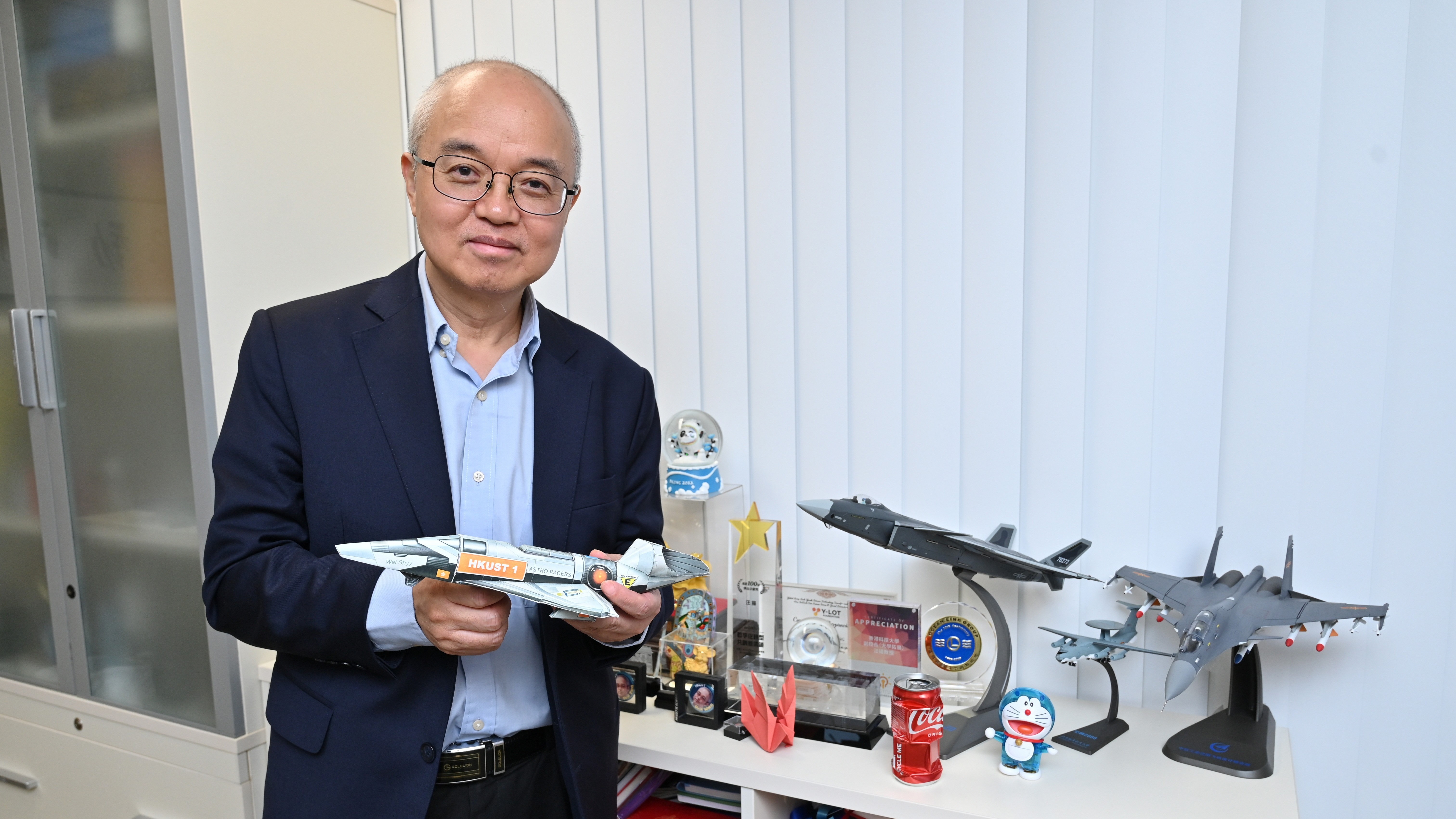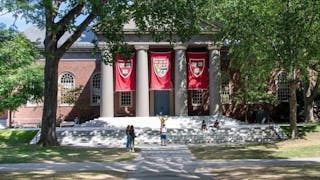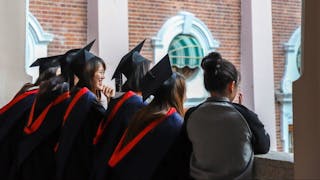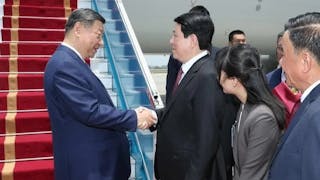(編按:候選人資格審查委員會周一(18日)宣布,裁定行政長官選舉候選人李家超的提名有效。李家超是唯一報名參選的候選人,他獲得786張有效提名票,有關公告經已刊憲。)
儘管李家超在4月13日獲得了選舉委員會1452名選委中的786位提名,有望成為香港特別行政區的下一任行政長官,但他對於高度合法性的追求才剛剛開始,這意味着他必須在5月8日贏得盡可能多選委手上的一票,並以這個方向撰寫他的政綱。
特首選舉反映「民主集中制」
雖然有人將注意力集中在李家超的所謂「缺乏基層支持」,因為三分之二的提名來自中上階層,但這種觀察忽略了李家超競選辦的17名副主任中,大多數來自專業背景的事實而不是來自基層。因此,第三界別(基層社團、勞工界和宗教界有102個提名)自然「代表性不足」,而第一界別(商業、企業界、金融界和金融服務界)有188個提名,而第二界別有186個提名來自專業界;第四界別(立法會議員、地區組織港區代表)163個提名;第五界別(全國政協、全國人大等全國性組織代表)147個提名。從政治動員的角度看,所有其他「愛國者」及其相關團體,都將在選舉日動員起來,令香港新任行政長官獲得高度合法性。
如果說內地選舉往往以「民主集中制」為特徵,以集中制為主導,那麼香港特首選舉也不例外。集中制的一面,體現在只提名一位候選人,即李家超;而其他幾位曾表態有興趣參選的港人,則放棄了參選,不是因為沒有人支持,就是因為他們明白,中央當局希望看到這次選舉反映了一個沒有派系競爭、團結的香港特別行政區。
李家超和他的競選辦公室面臨的最重要挑戰,是在這場單人選舉中獲得最高票數。因此,他的政網愈是強而有力,他在5月8日獲得更多選票的可能性就愈大。
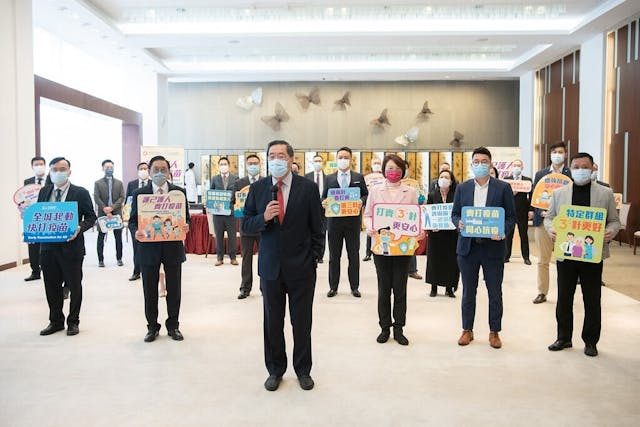
不同團體表達意見和期望
不同的利益和政治團體就各種政策領域向他和他的競選辦表達意見,例如鄉議局成員表達了他們對發展北部都會區的關注。
親北京的民建聯向李家超提出多項期望,包括一、在穩控疫情的前提下,積極恢復正常社會經濟活動及與海外人員往來;二、設立發展和改革政策組,輔助特區政府決策及進行中長期香港事務研究;三、重新委聘新聞統籌專員,加強統籌政府處理訊息的能力;四、啟動《基本法》第23條立法工作;五、制訂《網上虛假資訊法》;六、吸引非本地高端人才來港發展,包括為他們提供各項稅務優惠;七、把公屋「3年上樓」納入《長遠房屋策略》政策目標,每年公屋供應量調高至3萬個;八、在租金管制生效兩年內,制訂「劏房」起始租金;九、成立由政府主導的最低工資檢討委員會;十、積極協助推進人民幣國際化,包括進一步引入人民幣計價的股票證券交易制度等。
其他政治團體表達了他們對李家超的支持,但沒有詳細說明他們的要求,包括香港工商專業聯會和自由黨。工商聯和自由黨將如何闡明更具體的政策建議,以維護香港的經濟繁榮和國際金融中心的地位,仍有待觀察。
以工聯會為首的一些代表,訴求較為溫和,包括加強職業教育、推行全薪產假和男性侍產假、建立長遠失業保障制度,以及保障就業等。
處理劏房問題是重中之重
嚴格來說,民建聯和工聯會對改善民生的訴求相對較弱。現行稅制仍然偏向於非常富有的人,民建聯和工聯會都沒有建議審視現行稅制的方式,討論收入再分配;工聯會代表沒有提出任何具體的失業救濟金數額,以及其相關機制。最重要的是,民建聯和工聯會都沒有提出為申請公屋單位的窮人和有需要的人士,安排較短的輪候時間。
比起目前非常貧困人口居住的「籠屋」和「劏房」,方艙醫院的房間更大更寬敞。這個現象表明,2022年許多貧困人口的困境,堪比那些生活在1960和70年代殖民地香港「寮屋」的居民。在3月份Omicron疫情高峰期,許多住在「劏房」的人束手無策,在擁擠的環境中很容易被感染。
雖然中聯辦主任駱惠寧2021年9月視察過旺角的「劏房」,但除了實施租金管制外,特區政府對於「劏房」的政策並無大改變。
理想地說,李家超的政綱,如果是以結果為目標,就必須以更加堅定和有效的方式,處理「劏房」單位的存在和激增。
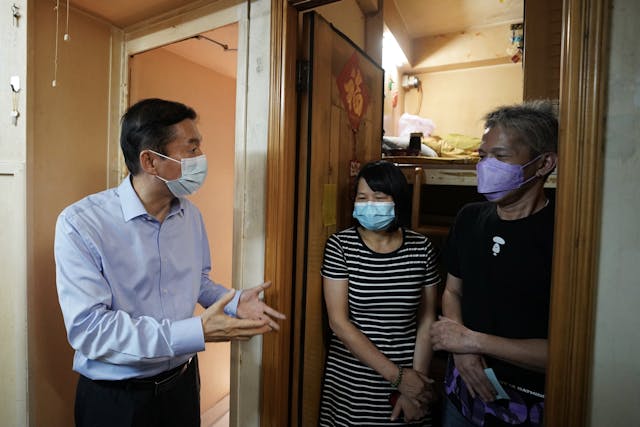
改革公務員制度 加強危機管理培訓
李家超已經提出了他將要處理的一些政策問題,包括了《基本法》第23條立法,以及在現有的政府架構中增加一些政策局局長(包括文體旅遊局局長、環境及生態局局長、醫務及衛生局局長、民政及青年事務局局長、房屋局局長、創新科技及工業局局長及運輸及物流局局長)。
一些公務員工會向李家超及其競選辦公室反映了對改革公務員制度的看法。嚴格來說,公務員工會應該保持政治中立,但在強調政治正確和愛國主義的新時代,他們表達對李家超政治上的支持是可以理解的。
一位公務員工會表示,各政策局與各部門要加強溝通。從公眾的角度看,政府抗擊Omicron疫情的混亂無章,更多源於中層和基層公務員缺乏領導力,而不是內部溝通出現問題。3月份對感染Omicron不幸離世的長者出具死亡證的遲緩,充分說明了一些部門處理危機的僵化程度。公務員制度改革應包括對部門進行更多的危機管理培訓,並增強對危機的迅速反應意識。李家超的政綱和施政方向,將如何包含全方位的公務員制度改革,還有待觀察。
制定明確的體育與青年政策
其他政策領域也需要處理。香港缺乏體育政策,亟待解決。鑑於90%的18至35歲年輕人在2021年12月的立法會選舉中沒有投票,李家超的競選團隊將不得不嘗試通過制定明確的青年政策來贏得他們的心。
重提政改不如先恢復區議會
立法會議員沒有人談及政治改革的必要性,除了狄志遠提到政府需要以2014年的「831框架」作為本港民主發展的起步點,落實《基本法》承諾的「雙普選」。根據「831」框架,中央政府允許港人在選舉委員會篩選出來的2至3名候選人中,普選香港的行政長官,儘管激進的民主派稱之為「假民主」。
從細思明辨的角度看,如果去年12月的立法會選舉,見證了大多數泛民政客的集體退出,那麼現在談政治改革為時尚早。如果泛民黨派在2026年重新接受下一次立法會選舉,那麼在2027年和2032年重提「831框架」的想法,才具有現實的可行性。
李家超和他的助手更有可能專注於地區行政改革,在許多區議員大規模辭職和取消資格後,大多數區議會現在都無法運作。至少,區議會是唯一直接選舉產生的諮詢機構。希望即使委任議席重新引入區議會,仍會給少數派議員保留一些議席。否則,地區一級若顯著地反民主化,可能會繼續使許多18至35歲的年輕人對政治冷感和理想破滅。
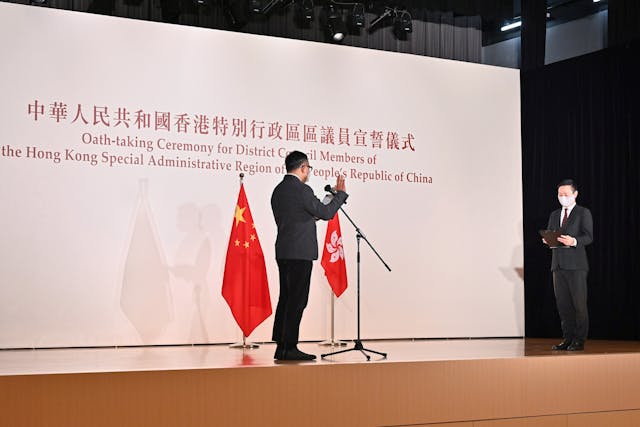
總之,李家超及其競選辦面臨的挑戰,是通過具體的政綱贏得更多選委的心。那些輕視這次特首選舉重要性的批評者,忽略了中國式民主的「民主集中制」成分,香港也不會例外。因此,李家超及其競選辦必須努力解決多重問題,以提高新任行政長官的合法性。這些問題不僅包括《基本法》第23條的立法,也包括大幅加快申請公屋單位的輪候時間、每年加快公屋單位興建、安置貧窮的市民是當務之急,至少讓他們住在更合乎人道的單位,而不是住在「劏房」和「籠屋」裏,要認真考慮收入再分配、公務員制度改革、體育政策、青年政策和地區行政改革的想法。
如果李家超政府的根基穩固,那麼2027年和2032年將有可能討論普選行政長官的問題,尤其是在香港特別行政區正在見證行政當局與更「愛國」的立法會議員的和諧關係的情況下。一個強勢而受市民歡迎的行政長官,將與合作的立法機關共存共榮。然而,與此同時,香港市民也不得不接受在「民主集中制」的原則下,逐步推進的政改、強調穩定和團結的政治現實。
John Lee’s Post-Nomination Policy Directions and Reforms
Although John Lee on April 13 secured 786 nominations out of the 1,452 members of the Election Committee (EC) and is poised to become the next Chief Executive of the Hong Kong Special Administrative Region (HKSAR), his quest for a high degree of legitimacy has just begun, meaning that he has to design his policy platform in such a way as to win the hearts and minds of as many members of the EC as possible on May 8.
While some people focused on the so-called “lack of grassroots-level support” of Lee because two-thirds of nominations came from upper-middle classes, this observation has neglected the fact that a majority of Lee’s 17 deputy directors came from professional background rather than from the grassroots sector. As such, the “under-representation” of the Third sector (grassroots, labor and religious sector having 102 nominations) was natural as compared to 188 nominations from the First sector (commercial, business, financial and monetary sector), 186 nominations from the professional sector, 163 nominations from the Fourth sector (legislators and district organizations’ representatives), and 147 nominations from the Fifth sector (members of the Chinese People’s Political Consultative Conference, National People’s Congress and other nation-wide organizations). From the perspective of political mobilization, all the other “patriots” and their related groups will be mobilized on the election day, leading to a high degree of legitimacy of the new Hong Kong Chief Executive.
If mainland elections are often characterized by the principle of “democratic centralism,” with the centralist element being the dominant component, the Hong Kong Chief Executive election is no exception to this rule. The centralist aspect is seen in the nomination of only one candidate, namely John Lee, while a few other Hong Kong people who had declared their interest in running for the election abandoned from doing so, either because they had no support or simply because they understood that the central authorities want to see this election as reflecting a united HKSAR without inter-factional rivalries.
The most important challenge for John Lee and his campaign office is to secure the highest number of votes in this one-person election. As such, the stronger his policy platform, the more likelihood he will get the higher number of votes on May 8.
Different interest and political groups contacted him and his campaign office for a variety of policy areas. For example, the rural advisory Heung Yee Kuk members expressed their concerns about the development of the Northern Metropolis.
The pro-Beijing Democratic Alliance for the Betterment and Progress (DAB) of Hong Kong expressed a number of demands, including (1) the recovery of ‘normal socio-economic activities and their interactions with overseas staff” in the process of containing Omicron; (2) the establishment of a development and policy reform unit to conduct research on Hong Kong’s policy issues; (3) the reappointment of an information officer to strengthen the government’s ability to communicate with the public; (4) the beginning of the legislation on Article 23 of the Basic Law; (5) the formulation of a “fake Internet information legislation;” (6) the attraction of non-local high-caliber talents to work in Hong Kong with tax exemptions; (7) the promise of ensuring 3 years for applicants for public housing units to live in their applied units while increasing the number of supply of public housing units to 30,000 per year; (8) the formulation of a fixed starting rental fee for sub-divided units within two years; (9) the review of the minimum wage by a government committee; and (1)) the promotion of the internationalization of Renminbi in the HKSAR.
Other political groups expressed their support of John Lee without elaborating on their demands, including the Business and Professional Federation (BPF) and the Liberal Party (LP). It remains to be seen how the BPF and LP will articulate a more concrete policy platform for the interest of maintaining Hong Kong’s economic prosperity and its status as a financial center.
Some representatives led by the Federation of Trade Unions (FTU) were moderate in their demands, including the promotion of vocational training for the working class, the implementation of maternity leave for men whose wives would give birth to babies, an increase in unemployment benefits, and the protection of workers’ jobs.
Critically speaking, the DAB and FTU have made relatively weak demands on the improvement of the people’s livelihood. Neither the DAB nor the FTU talks about income redistribution in the form of reviewing the current tax system that remains lopsided in favor of the very rich people. FTU representatives have not suggested any concrete amount of unemployment benefits and their related mechanism. Most importantly, both DAB and FTU have not discussed a much shorter waiting time for those poor and the needy who applied for public housing units.
The phenomenon of the Cube Hospital, where rooms are much larger and spacious than the current cage homes and sub-divided units in which the very poor people are residing, shows that the predicament of many poor people in 2022 is parallel to those people living in squatter huts in colonial Hong Kong during the 1960s and 1970s. During the apex of Omicron attack in March, many people living in sub-divided units were helpless and could easily get infected in crowdy environment.
Although the Liaison Office’s director Luo Huining visited a sub-divided flat in Mongkok in September 2021, there has been no drastic change in the HKSAR government’s policy toward these sub-divided units except for the imposition of rental control.
Ideally, John Lee’s policy platform, if it is result-oriented, would have to deal with the existence and proliferation of sub-divided units in a far more determined and effective manner.
John Lee has already mentioned a number of policy issues that he will tackle: a legislation on Article 23 of the Basic Law, and the addition of a few policy secretaries and bureaus to the existing government structures (including Secretary for Culture, Sports and Tourism; Secretary for Environment and Ecology; Secretary for Medical and Health Affairs; Secretary for Home and Youth Affairs, Secretary for Housing, Secretary for Innovation Technology and Industry; and Secretary for Transport and Logistics).
A number of civil service unions contacted John Lee and his campaign office for their views on civil service reform. Strictly speaking, civil service unions should remain politically neutral, but their expression of political support of Lee was understandable in a new era of emphasizing political correctness and patriotism. One civil service union said the policy bureaus and departments should enhance their communications. From the perspective of the public, the chaos in the government’s combat against the spread of Omicron stemmed more from the lack of leadership in the civil service at the middle and lower levels rather than the communication gap from within. The slowness of issuing death certificates to those elderly people who unfortunately died of Omicron in March fully illustrated the rigidity of some departments in dealing with crises. Civil service reforms should embrace more training on crisis management on the part of departments and instill a greater sense of prompt responses to crises. It remains to be seen how John Lee’s policy platform and direction will embrace comprehensive civil service reforms.
Other policy areas need to be tackled. The lack of any sports policy for the HKSAR has to be addressed urgently. Given the fact that 90 percent of the youth aged between 18 and 35 years old did not vote in the December 2021 Legislative Council elections, the campaign team of John Lee would have to try winning their hearts and minds by having a clear youth policy.
None of the legislators talked about the need for political reform, except for Tik Chi-yuen who mentioned the need for the government’s reinvigoration of the August 31 parameter in 2014 during which the central authorities allowed the people of Hong Kong to select their Chief Executive after an election committee screens out 2 to 3 candidates. the radical democrats labelled such a generous proposal as “pseudo-democratic.”
From a critical perspective, it is a bit too early to mention political reform if the December legislative election witnessed the withdrawal most democratically inclined groups. If the pro-democracy groups return to embrace the next legislative elections in 2026, there would be a realistic possibility of refloating the idea of August 31 parameter in 2027 and 2032.
John Lee and his assistants would be more likely focusing on district administrative reforms, where most District Councils are now not functioning after mass resignations and disqualifications of many council members. At the very least, District Councils are the only advisory bodies with directly elected components. It is hoped that, even if appointed seats may be reintroduced to District Councils, such appointed seats would be kept to a minority of council members. Otherwise, a prominent reverse democratization at the district level would likely continue to perpetuate the political apathy and disillusionment of many young people aged between 18 and 35.
In conclusion, the challenge for John Lee and his campaign office is to win the hearts and minds of more Election Committee members through a concrete policy platform. Those critics who discount the importance of this Chief Executive election have ignored the element of “democratic centralism” in Chinese-style democracy. Hong Kong is no exception to this rule. As such, John Lee and his campaign office have to make strenuous efforts at addressing a multiplicity of issues to enhance the legitimacy of the new Chief Executive. These issues embrace not only the legislation on Article 23 of the Basic Law, but also the urgent matter of speeding up the waiting time for many applicants of public housing units, accelerating the construction of public housing units annually, rehousing the poor to at least more humane housing units rather than living in sub-divided units and cage homes, and toying with the ideas of income redistribution, civil service reform, sports policy, youth policy, and district administrative reforms. If the foundation of the John Lee administration would be firmly entrenched, then the year 2027 and 2032 would have the realistic likelihood of discussing the issue of democratizing the election of the Chief Executive, especially as the HKSAR is witnessing a harmonious relationship between the executive and the more “patriotic” legislature. A strong Chief Executive with popular mandate in the future will coexist with a cooperative legislature. In the meantime, however, the people of Hong Kong have to accept the political reality of a step-by-step process of political reform, emphasizing stability and unity under the principle of “democratic centralism.”
原刊於澳門新聞通訊社(MNA)網站,本社獲作者授權轉載。



